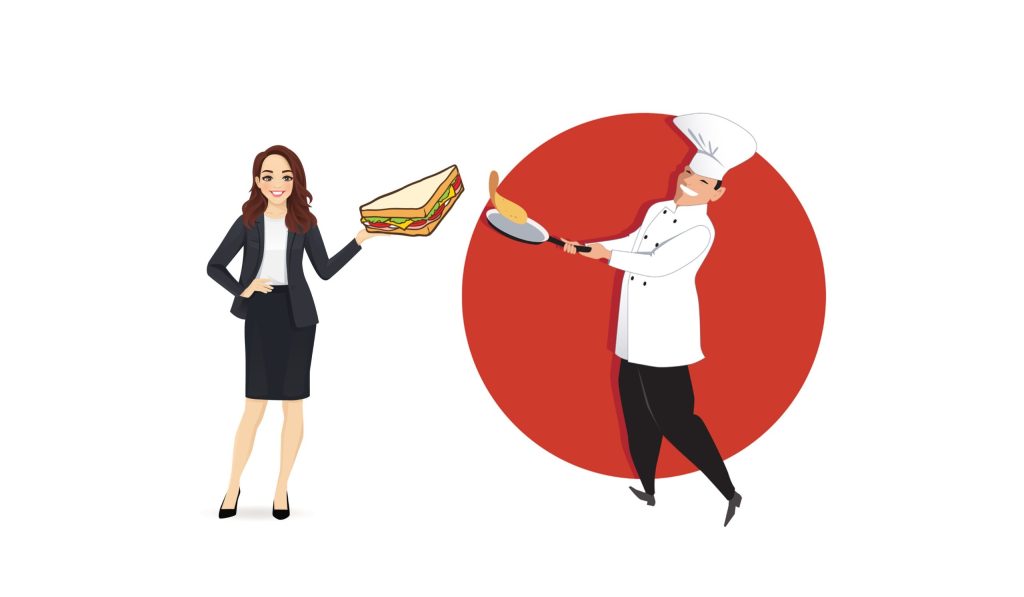With 25 days to go before the March 9 #iorestoacasa Decree, taking my cue from an online survey of the main needs encountered by physicians conducted by Medipragma in the third week of March 2020, i.e., in the midst of the Coronavirus emergency, and the first results of the study on success factors in the health ecosystem(Success Factor Modeling for Healthcare) conducted by me together with Robert Dilts, an American author, consultant and researcher, I have made some reflections.

In the article posted on Linkedin Lucio Corsaro (Medipragma) expressly writes: “it is important to keep in mind that when we try to answer the question“what do physicians need right now?” that a redefinition of the priorities and type of needs of physicians, as well as of the Italian population itself, is taking place, in which the need should be analyzed and identified from the perspective of three macro dimensions: FUNCTIONAL, SOCIAL, EMOTIONAL.”

I went to look up the etymological meaning of these three terms:
FUNCTIONAL, from function, which comes from Latin functiònem, from fùnctus, past participle of fùngi, meaning to exercise, to care for, to fulfill;
SOCIAL, from the Latin sociàle, composed of socius meaning companion (one who accompanies, who joins another in a common enterprise) and the termination -àlem meaning belonging or dependence. Social, therefore, pertaining to society;
EMOTIONAL, from emotion, which comes from the Latin emotiònem, from emòtus, past participle of emovère, meaning to carry off, to stir, to shake; the meanings attributed to it are agitation, lifting of spirits, enthusiasm or emotion.
All three dimensions evidently fundamental, complementary and interdependent, that is, one needs the other and none can do without the other. The intention is not to engage in facile rhetoric but simply to dwell on some aspects that, alas, go back a long way:
“JURY
…
to pursue as my exclusive purposes the defense of life, the protection of man’s physical and mental health and the relief of suffering, to which I will inspire with responsibility and constant scientific, cultural and social commitment, my every professional act;
…
To adhere in my activity to the ethical principles of human solidarity…
to perform my work with diligence, skill and prudence according to science and conscience and observing the deontological norms governing the practice of medicine and legal norms that do not conflict with the purposes of my profession;
…
to entrust my reputation solely to my professional abilities and moral qualities;
…
to treat all my patients with equal scruple and commitment regardless of the feelings they inspire in me and irrespective of any difference in race, religion, nationality, social status and political ideology;
to render emergency assistance to any infirm person who needs it and to place myself, in case of public calamity, at the disposal of the competent Authority;
to respect and facilitate in all cases the right of the sick person to the free choice of his or her physician bearing in mind that the relationship between physician and patient is based on trust and in all cases on mutual respect;
…
taken from the Hippocratic Oath (modern text)
There were probably no masks and respirators in Hippocrates’ time, but there were certainly other basic commodities and supports, and there had to be all the functional necessities to care for all patients and provide emergency care; exactly how the social role was evidently considered a cornerstone and, last but certainly not least, the emotional aspect was present in everything included in the package of caring for a patient, of the importance of ” knowing what kind of person has a disease, than knowing what kind of disease a person has,” again borrowing the words of the ancient Greek physician.
Hippocrates aside, referring to the Code of Medical Ethics where, precisely also to highlight the social role of the medical profession, in some articles the term “patient” has been replaced by the term “citizen,” as well as Article 77 on activities in the interest of the community emphasizes the role that the physician must play in society.
Now let’s talk for a moment about the emotional dimension, which, as I have been teaching physician-patient communication to medical students and health professionals for ten years, is a topic I hold dear and have written about many times.
How is it possible that in being in contact every day with people who are suffering, telling you about their pains, dying, caring for sick family members, fighting to win and regain health, some well-being or, in some cases, just some relief, and they, the doctors are there, fighting with them and for them, that the emotional dimension was not contemplated, not so much at least?
Do we really want to tell ourselves this story? More importantly, do we really want to believe it?

I then jump to something more recent, to the first results of the Success Factor Modeling for Healthcare study I am conducting on success factors in the health ecosystem, which were presented in Rome on January 31 and February 1, 2020, that is, before the Coronavirus emergency in Italy. I think it is significant that the main success factors that emerged have to do with theengagement, l’empowerment, experience/competence,efficiency andeffectiveness of the health care organization; that the top three skills identified as success factors were in order: communication skills, problem solving skills and emotional intelligence.
Success factors, then, that turn into needs when underestimated and/or ignored.
So, honestly, the question that arises for me is:
is it possible that the three dimensions-the functional, the social, and the emotional-have always existed, and that perhaps we have lost a few pieces along the way in the meantime?
Did we forget something? And I deliberately use the plural because perhaps it is precisely as a collective, as a system, that we have missed some pieces. It would be too easy to blame this or that category, whereas I think a little piece of responsibility is and we all have it, from the political and administrative spheres that have only complicated the work of the physician by disproportionately reducing resources in various respects, to that of education and training, which has been very careful to update the undergraduate and graduate curricula and continuing education curricula of health professionals, underestimating or, in some cases, ignoring altogether, certain skills that today, thanks in part to a survey such as Medipragma’s, we have the courage to call “needs” , to the more strictly social and civic, etc.
That is why I wanted to write this article: because, perhaps, together with important and meaningful reflections of so many others I have read and heard in recent weeks, they can help us ensure that all this, at least, did not happen in vain. To not forget, but remember all that will be needed to meet these needs and make them what they really are and can be: success factors.
Thank you
Emanuela
You may also be interested in
All articles
Loneliness in the Age of Communities
Mother Teresa called loneliness the most terrible poverty, associating it with the feeling of…

Doctor-patient relationship: the placebo effect of communication
I start with a quote from Prof. Fabrizio Benedetti, professor of neuroscience at the…

Feedback: when the sandwich becomes an omelet
How many times have you heard about how important feedback is? And how crucial…

